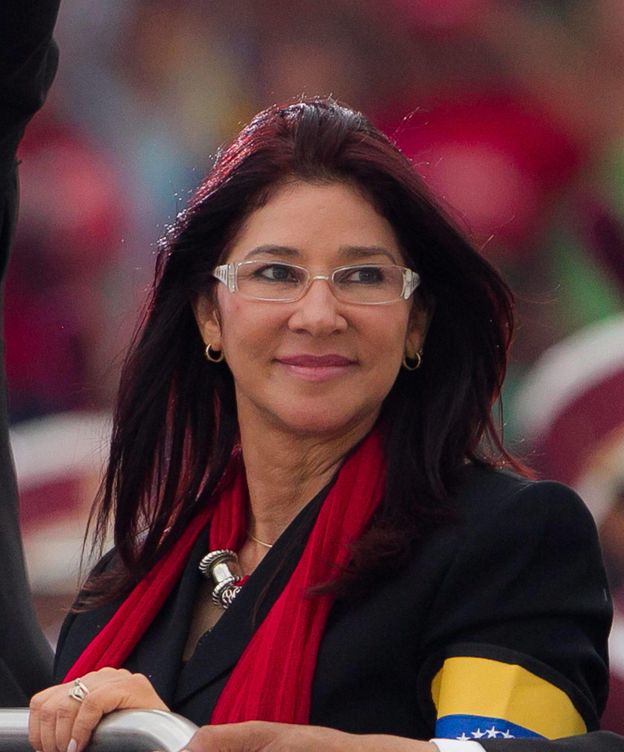In Venezuela, she is known by many nicknames: “Cilita” by her husband Nicolás Maduro , president of Venezuela since 2013; “Chávez’s daughter” as she was one of the right-hand men of Hugo Rafael Chávez , president of Venezuela from 1999 until his death in 2013, and one of the main defenders of Chavismo; and “the first combatant” since first lady would not be appropriate in Chavista jargon. The term used to address Flores does not have to be the same by everyone, however, we all agree that she represents the most powerful woman in the country , at least while her husband remains in power. Precisely this authority is a delicate matter at present, as he himself has been invested for a third presidential term in Venezuela, despite the accusations of electoral fraud by the opposition ( Edmundo González and María Corina Machado ) and the international community.
On the other side of the arm of the current Venezuelan leader, Cilia Flores (Tinaquillo, Venezuela, 68 years old) has been for 30 years and is “pure fire”, in the words of her husband, as well as one of the most influential figures in Venezuelan politics . Always hidden in the shadows, she has enjoyed very good views of power by having built a wide network of collaborators that have allowed her to control the highest echelons of the country’s political system in her extensive political career.
She has been technically First Lady for over a decade, having formalised her relationship with Maduro after 20 years together and accompanying him in his rise to power the same year, in 2013. However, her origins go back much further in the country’s political history.
‘The first revolutionary fighter’
She was born in 1956 in Tinaquillo, Cojedes state, and grew up in the slums of western Caracas as the youngest of six siblings in a home of humble origins. She is a lawyer specializing in labor and criminal law and first rose to public attention when she legally defended Hugo Chávez, the former president of Venezuela, and other military officers involved in the failed 1992 coup attempt against President Carlos Andrés Pérez. It was during those years of struggle and learning that she became known as the “daughter of Chávez” and that she met Nicolás Maduro, who was part of the revolutionary leader’s security team. Since then, their lives and political trajectories have been deeply intertwined.
Flores began her political career by founding the Círculo Bolivariano de los Derechos Humanos in 1993 and joining Chávez’s MBR-200 Bolivarian Movement, which later evolved into the United Socialist Party of Venezuela (PSUV). She was a member of the National Assembly in 2000 and 2005, becoming the first woman to preside over the parliament in 2006. In parallel, she held key roles in the PSUV, serving as vice president of the party between 2009 and 2011.
Since Maduro came to power, with whom she has raised four children, none of whom shared a common life, Flores has been a prominent figure in Chavismo. She accompanies Maduro in his public events and plays a symbolic maternal and supportive role in the regime. She even had a television program, called Con Cilia en familia , in which she sought to highlight family and revolutionary values, although it was widely criticized by the media and the opposition.
Controversies at Miraflores Palace
Throughout her political career, Flores has been surrounded by controversy, from allegations of nepotism to her frequent absence from parliament. In 2018, she was singled out by Canada and the United States for her closeness to Maduro and her role in consolidating the regime’s power. In response, Maduro asked that the attacks be directed at him and not his wife.
Another dispute occurred during his administration in the National Assembly, where he faced criticism for nepotism when hiring relatives and friends in the public administration, something he defended by arguing that they had entered because of «their own qualities.»
But the scandal that reached higher than the presidential palace of Miraflores was the arrest of his nephews for allegedly trying to distribute 800 kilos of cocaine in the United States. Better known as the «narco-nephews», Efraín Campos Flores and Francisco Flores de Freitas were arrested in November 2015 in Haiti and found guilty by the US justice system, with a sentence of 18 years in prison, although Cilia described their arrest as a «kidnapping».

